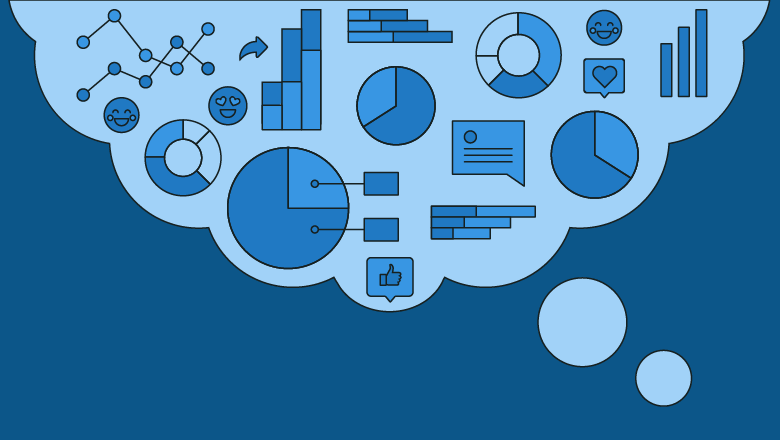In today’s digital age, the influence of social media is undeniable. From individuals to businesses, everyone is keen on establishing a robust online presence. But how do you measure the impact of your social media efforts? This is where social media analytics and intelligence come into play. In this article, we’ll delve into the world of social media analysis, exploring its importance, methodologies, tools, and the actionable insights it provides.
Understanding Social Media Analytics and Intelligence

1. The Essence of Social Media Analytics and Intelligence
Social media analytics and intelligence involve the collection, measurement, and interpretation of data from various social media platforms. It helps individuals and businesses understand the performance of their content, audience engagement, and overall social media strategy.
2. Why Social Media Analytics Matters
In today’s competitive landscape, data-driven decisions are paramount. Social media analytics empowers you to track key performance indicators (KPIs) such as likes, shares, comments, and click-through rates. By analyzing these metrics, you can optimize your content strategy and resonate better with your target audience.
Methods of Social Media Analysis
1. Quantitative Analysis: Measuring Metrics
Quantitative analysis involves numerical data. Metrics like the number of followers, post reach, and website traffic can provide insights into the effectiveness of your social media campaigns.
2. Qualitative Analysis: Understanding Sentiments
Qualitative analysis dives into the qualitative aspects of social media engagement. It helps you gauge sentiments, opinions, and conversations surrounding your brand. This is achieved through sentiment analysis tools that determine whether mentions are positive, negative, or neutral.
3. Competitor Analysis: Gaining a Competitive Edge
Analyzing your competitors’ social media performance can offer valuable insights. By identifying their successful strategies and areas of improvement, you can refine your approach.
Social Media Analytics Tools
1. Google Analytics: Beyond Website Traffic
Google Analytics isn’t just for websites. It can be integrated with social media platforms to provide a comprehensive view of user behavior, referral sources, and conversion rates originating from social channels.
2. Social Media Management Tools: Simplifying Analysis
Platforms like Hootsuite and Buffer offer analytics features that consolidate data from multiple social media accounts. This simplifies the process of tracking and interpreting performance metrics.
3. Social Listening Tools: Capturing Conversations
Social listening tools like Brandwatch and AIM Insights enable you to monitor discussions about your brand across social platforms. This helps in understanding customer opinions and adapting your strategy accordingly.
Extracting Actionable Insights
1. Identifying Peak Engagement Times
Through analytics, you can determine when your audience is most active. Posting content during these peak times can maximize reach and engagement.
2. Optimizing Content Types
Analyzing the performance of different content formats (videos, images, articles) can guide you in creating content that resonates best with your audience.
3. Refining Target Audience
Analytics reveal demographic and geographic data about your audience. This information helps tailor content to better suit the preferences of your followers.
Conclusion
Social media analytics and intelligence offer a window into the effectiveness of your online presence. By leveraging the power of data, you can refine your strategies, boost engagement, and establish a meaningful connection with your audience. In a world driven by digital interactions, these insights are the key to thriving in the virtual realm.
Ready to unlock the potential of social media analytics for your business? Request a demo from AIM Technologies today! Discover how our advanced tools can empower your social media strategy like never before.
FAQs
What is the primary purpose of social media analytics?
- Social media analytics aims to provide insights into the performance of your social media efforts, helping you make data-driven decisions.
Can social media analytics improve my content strategy?
- Absolutely! By analyzing engagement metrics, you can tailor your content strategy to better resonate with your target audience.
How do sentiment analysis tools work?
- Sentiment analysis tools use natural language processing to determine whether social media mentions are positive, negative, or neutral.
Why is competitor analysis important in social media?
- Competitor analysis reveals successful strategies and areas for improvement, giving you a competitive edge.
What’s the significance of peak engagement times?
- Posting content during peak engagement times maximizes its visibility and interaction with your audience.


